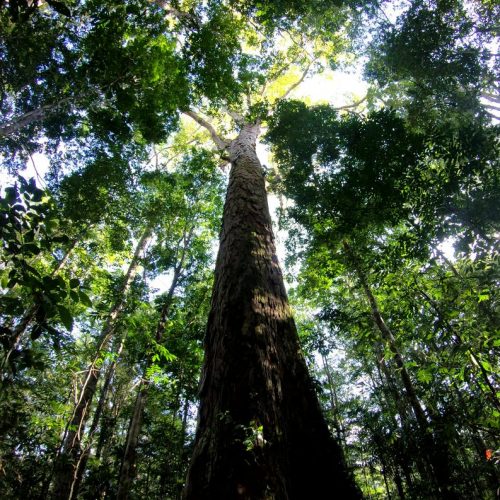The Plant Science stalls and the Talking Plants tent are two of the main draws to the Festival of Plants. While we can’t invite you into the Garden to interact with plant scientists, we have asked them to create some presentations specifically for the online Festival of Plants to tell you a bit about what they are currently working on.
We hope that you find these talks fascinating and enjoyable, and perhaps when you are next having lunch, have a think about where all the ingredients on your plate have come from …
![]()
TIGR2ESS and MillNETi are international research programmes addressing one of the biggest global challenges of our time: food security.
The programmes bring multiple disciplines together, from crop science to social science, nutrition, engineering and even archaeology. They have a focus on enhancing research capacity and community building, and are working towards sustainable, future-proofed, food systems in India, Ethiopia and The Gambia.
![]()
Gabriela Doria: The imperceptible texture of petals and its role in pollination of wild tobaccos
An exploration of the evolution and development of microscopic features on flowers of wild tobaccos and how they define the interaction with animal pollinators.
![]()
Helen Curry: Gene Banks, Seed Libraries and Vegetable Sanctuaries: The History of Heritage Vegetable Conservation in Britain
Dr Helen Curry is a historian of science Her current research focusses on the history of efforts to conserve genetically diverse varieties of agricultural crops. In her talk, she discusses the role of British home and allotment gardeners in the conservation of heritage vegetables.
![]()
Bijun Tang: Seeing a plant hormone in action
Gibberellin (GA) is an important plant hormone for plant growth and development. It is widely used in agriculture. Our lab developed a tool nGPS1 to study the distribution of GA at a cellular level and we are using it to study the relationship between GA distribution and plant development. Hopefully, this understanding will allow us to design crop with more desired characters.
![]()
Phil Howell: Crop Improvement and Pre-Breeding
A huge amount of research effort goes into developing the crop plants that farmers grow. This short talk, from a research breeder based at NIAB, explores some of the ‘pre-breeding’ work that underpins the genetic diversity of our crops, and how the sector may need to change to address the challenges of the future.
![]()
Natasha Elina: Why bananas do not have seeds
In this talk Dr Elina explains why bananas do not have seeds and how they can make offspring.
She discusses plant genetic information, or the blueprint instructing plants how to grow and make roots, shoots, flowers, fruits and seeds. Dr Elina talks about how plants pass this blueprint on to their offspring, and about how basic science informed applied research to create seedless watermelons, apples and grapes.
![]()
Claudia Martinho: Can plants teach us how to decipher genomes?
Cells employ complex mechanisms allowing genes to be switched ON and OFF. In this talk, we will explore one of these mechanisms – epigenetics – in tomato plants where mysterious epigenetic patterns allow to switch OFF and silence a particular gene involved in leaf colouring. Studying gene silencing in tomato plants is allowing us to understand how genomes work and how genetic information is carried across plant generations.
![]()
NIAB: Wheat
The Genetics & Breeding team at NIAB work to understand and accelerate the genetic improvement of crops, particularly wheat, the UK’s main crop. In this short video they explain their work to understand adaptation of wheat to changing environmental conditions and to uncover the genetic basis of yield. This research will inform future breeding efforts underpinning food security.
The video features Alison Bentley (Director of Genetics & Breeding at NIAB), Hester Sheehan (Postdoc at The Department of Plant Sciences currently on placement at NIAB) and Toby Barber (PhD student at NIAB).
![]()
Indu Santhanagopalan: Small, but mighty efficient: Microbial carbon concentration mechanism
Tiny microbes, living in water, with limited access to carbon dioxide carry out photosynthesis efficiently. How do they do it? The answer lies in their ‘carbon concentrating mechanisms’.
![]()
Gita Yadav: Green Carbon for Food Security
Gita Yadav is a Lecturer at the Department of Plant Sciences working on food security. In this talk, she highlights how her research in the TIGR2ESS Program addresses the combined Global Challenges of Climate change and Food security. She also describes the huge transdisciplinary effort underway in this GCRF progamme, along with her interests and contribution to Equality, Diversity and Capacity Building.
![]()
Isabel Nimmo: The Scientist with the Golden Gun
Isabel discusses recent research in Cambridge on one of the species which helps make up coral reefs. She talks a little about coral bleaching, and some of the work researchers are doing to better understand how this process is occurring, and what we might do about it in the future
![]()
Sabine Brumm: Plant-Microbe interactions: frenemies for life
Plants are constantly perceiving and interacting with their environment. Their growth is massively influenced by a multitude of factors including the interactions with microbes. Understanding the principles underlying the colonization of plants by beneficial and detrimental microbes enables us to work on improving plant yields in the future.



